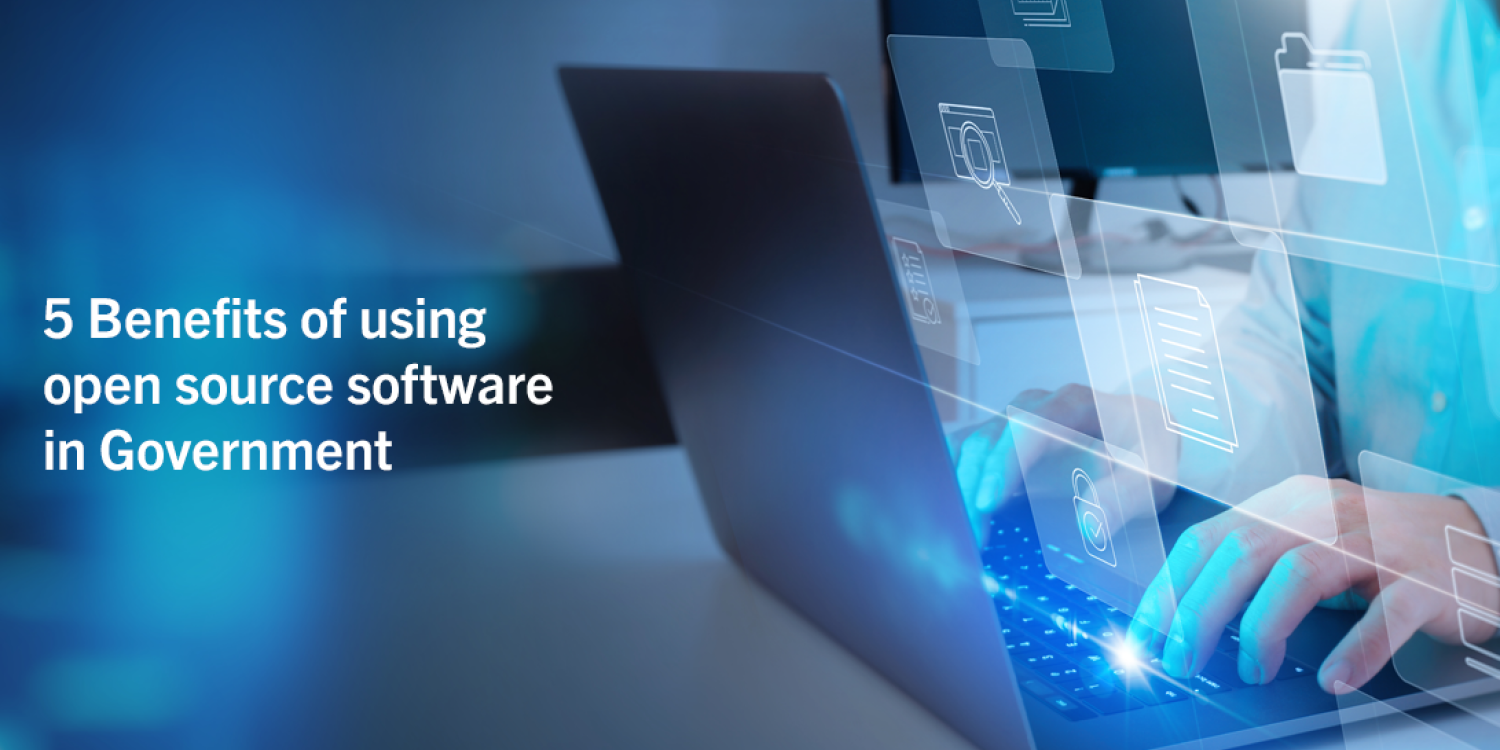What do open source and democracy have in common? Perhaps, it is the underlying philosophy behind both. In a democracy, the government represents the people and is selected by the people irrespective of gender, religion, nativity, or any other discriminatory characteristics. Open source can be seen as a technical expression of democratic government, as open source is a result of public accessibility, open exchange, and collaborative participation. It thrives on transparency, meritocracy, and community development. The goal of open source and democracy is loosely the same – ensure more control and create a better future.
Applications of open source software extend from computer hobbyists to professional businesses, but the public sector has not always been embracing open source technologies. The reason is perhaps the misconception that open source software is time-consuming and offers unsupported solutions.
The following advantages of using open source software in government may allay these unfounded concerns:
- Flexibility and Customizability
If you use a proprietary software like Microsoft, you will be familiar with the unofficial updating protocol that is followed. You keep on receiving notifications asking to upgrade your software as and when the next version reaches the market. If you are unwilling to update, then there will be a point when not only the notifications will cease, but also your software. This can be highly frustrating as you are denied the personal right to maintain a version you feel comfortable with. Also, updating the software can cost money which means you always will need to keep on paying only to use the software you already bought.
Government agencies will also confront the same situation. Switching to open source will not only mean saying goodbye to endless notifications and demands by proprietary software, but also flexibility and customizability. Open source implies that the source code is available for access and customization. Government agencies can easily tailor open source applications to meet their specific needs and requirements and enjoy complete ownership of their application.
- Affordability and Auditability
A common misconception among people is that open source implies free of cost. Of course, there is open source software that is free of cost known as Free and Open Source Software (FOSS), but not all open source software are free. Nonetheless, open source software is in almost every case available at a price much lower than its proprietary counterpart. Also, open source does not have any hidden charges or unnecessary update demands that cost money.
Furthermore, proprietary software does not reveal its source code, and the buyers just take a leap of faith believing that all the claims made by the vendor are true. Open source software not only makes available but also facilitates access to source code. This will ensure that the government agencies validate the vendor’s claims and see whether the software adheres to mandatory standards for security.
- Freedom
When government agencies purchase proprietary software from vendors, they will be at the mercy of the vendors as neither do they have the source code nor do they have the right to make any changes to the software they buy. This results in a vendor lock-in where the agency will always have to depend completely on the vendor in case any need arises. Open source software provides freedom from a single vendor as well as the freedom to modify the software you buy which puts you in control.
- Quality
Simply consider this – proprietary software is created by a few developers whereas open source software is created by countless developers. In addition, open source ensures good testing and code review which can even be performed by the government agencies themselves to ascertain the quality assurance given by the vendors.
What is more noteworthy is that the open source software developers could include the potential users too, resulting in a software that matches the expectations of the users.
5. Support
Open source technology is always supported by an active developer community which usually covers the entire globe. Open software like Linux has a solid online community with outstanding documentation, forums, mailing lists, newsgroups, and whatnot, to help anyone having concerns regarding Linux distributions. Unlike proprietary vendors, most open source communities do not charge any money for help and support.
Towards an Open Government
The concept of open government preaches a government that is highly transparent and offers mechanisms for continual public scrutiny. Open government envisions increased citizen participation and collaboration in all government proceedings through the application of modern and open technologies.
The origin of this concept is traced back to the Age of Enlightenment/ Reason in the 17th and 18th centuries when the seeds of rights of free speech, expression, and assembly were sown in many Western nations. In the 1950s and ’60s, certain laws such as freedom of information were passed, which intended to foster a transparent, accessible, and accountable government culture. These laws came to be known as ‘sunshine’ laws.
If the future is a walk towards an open government, open source technologies will perhaps play the most significant role.


